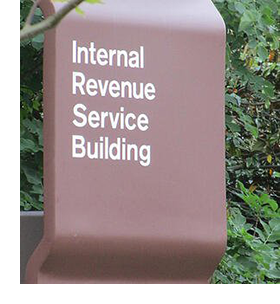The PATH Act accelerated the due date for filing Form 1099 that includes nonemployee compensation (NEC) from February 28 to January 31 and eliminated the automatic 30-day extension for forms that include NEC. Starting with tax year 2020, taxpayers should use Form 1099-NEC to report nonemployee compensation.
Form 1099-NEC replaces the use of box 7 on Form 1099-MISC from previous years. Other uses of 1099-MISC have not changed and will continue to be used for common payments such as rent and payments to an attorney.
New 1099-NEC Form For Nonemployee Compensation
Zinner & Co. Tax Team Taxes - Planning, Rules and Returns , Taxes - Individual , tax , taxes , income tax , tax avoidanceWhat you need to know about the economic impact payments
Zinner & Co. Tax Team Taxes - Planning, Rules and Returns , Taxes - Individual , IRS , Economic Impact PaymentsThe Treasury Department and the Internal Revenue Service recently announced the distribution of economic impact payments will begin within the next three weeks, and will be distributed automatically, with no action required by most people.
However, some seniors and others who typically do not file returns, will need to submit a simple tax return to receive the stimulus payment.
IRS Clarifies 90-Day Payment Relief
Zinner & Co. Tax Team tax services , Taxes - Corporate & Business , Taxes - Planning, Rules and Returns , Taxes - Individual , tax , taxes , income tax , Zinner & Co. , Coronavirus , Treasury Department , COVID-19 , Deferring Tax PaymentsOn March 18, the Internal Revenue Service provided clarification to special payment relief for individuals and businesses in response to the COVID-19 Outbreak.
For individual returns, income tax payment deadlines with a due date of April 15, 2020, are automatically extended until July 15, 2020, for up to $1 million of their 2019 tax due.
This payment relief applies to all individual returns, including self-employed individuals, and all entities other than C-Corporations, such as trusts or estates. The IRS will automatically provide this relief to taxpayers. Taxpayers do not need to file any additional forms or call the IRS to qualify for this relief.
IRS Deferring Tax Payments by 90 Days
Zinner & Co. Tax Department tax services , Taxes - Corporate & Business , Taxes - Planning, Rules and Returns , Taxes - Individual , tax , taxes , IRS , Coronavirus , Treasury Department , Steven Mnuchin , COVID-19 , Deferring Tax PaymentsTax Deadline Remains April 15
While taxpayers still have to file their taxes by April 15, 2020, the deadline to pay taxes has been extended by 90 days until July 15, 2020.
During a March 17th press conference regarding the coronavirus pandemic, U.S. Treasury Secretary Steven Mnuchin announced taxpayers will have an additional 90-days through July 15, 2020 to pay their taxes, penalty-free and interest-free.
He said individual taxpayers can defer up to $1 million of tax payments and corporations up to $10 million in tax payments.
Welcome 2020 Tax Season Interns
Zinner & Co. Tax Team Taxes - Planning, Rules and Returns , Taxes - Individual , tax , Zinner & Co. , Tax InternsZinner & Co. is proud to introduce our new 2020 tax season interns. We hope this snapshot of them will help you get to know them, as some of our clients will be receiving communications from our interns, as they will work on tax returns this season.
The Benefits of Filing a Tax Extension
Brett W. Neate, CPA, MTax tax services , Taxes - Corporate & Business , Taxes - Planning, Rules and Returns , Taxes - Individual , tax , taxes , income taxOne of the most common tax-related misconceptions is that filing a tax extension increases your risk of a tax audit.
This longstanding myth is simply not true, as filing a tax extension can statistically decrease the risk of an audit.
In addition to statistically decreasing the risk of an audit, there is also one other benefit to extending a tax return.
Plan for Tax Season
Brett W. Neate, CPA, MTax tax services , Taxes - Corporate & Business , Taxes - Planning, Rules and Returns , Taxes - Individual , tax , taxes , income tax , tax avoidanceMany individuals may think the time to plan for tax season occurs during the tax season, which occurs after their tax year has ended.
Unfortunately, this is often too late to make any adjustments, which may have benefited the taxpayer.
Similarly, businesses can also fall into this line of thinking and fail to plan for tax season during their tax year.
Extensions are not an Invitation for an Audit
Zinner & Co. Tax Team Taxes - Corporate & Business , Taxes - Planning, Rules and Returns , Taxes - Individual , taxesDue to many changes in the tax law under numerous tax acts that have been implemented over the past decade, including delay in the issuance of tax forms needed to complete individual income tax returns, the compression of the tax preparation and filing season has become even more severe.
Is This Expense Deductible In 2019?
Zinner & Co. Tax Team Taxes - Corporate & Business , Taxes - Planning, Rules and Returns , Taxes - Individual , Tax Cuts and Jobs Act of 2017The tax code is long and complicated and oftentimes, taxpayers do not know what deductions or credits are available, which means they cannot take advantage of possible savings.
With so many changes under the 2017 Tax Cuts and Jobs Act and the 2019 SECURE Act now in place, changes have been made regarding the deductibility of expenses that both business and individual taxpayers may not be aware of.
IRS Announces Inflation-Adjusted Standard Deduction Amounts for 2020
Zinner & Co. Tax Team Taxes - Individual , deductions , income tax , IRSThe IRS issued its annual inflation adjustments for key tax items for the tax year 2020. Among them are new amounts for standard deductions.
For the tax year 2020, the standard deduction for a married couple filing jointly will be raised from $24,400 to 24,800. For single taxpayers and married couples filing separately, the standard deduction will be raised from $12,200 to 12,400. For heads of households, the standard deduction will be $18, 650.
Margin tax rates will change as follows:
About Us

Since 1938, Zinner has counseled individuals and businesses from start-up to succession. At Zinner, we strive to ensure we understand your business and recognize threats that could impact your financial situation.
Recent Blog Posts
Categories
- 1031 Exchange (2)
- 401k (2)
- 529 plan (4)
- ABLE Act (1)
- account systems (3)
- accounting (8)
- Affordable Care Act (8)
- alimony (2)
- American Rescue Plan Act (1)
- Ask the Expert (5)
- Audit and Assurance Department (13)
- audits (8)
- Bank Secrecy Act (1)
- banks (1)
- Barbara Theofilos (6)
- Beneficial Ownership Information (1)
- Bitcoin (1)
- block chain (2)
- BOI (3)
- Bookkeeping (1)
- Brett W. Neate (28)
- budgets (1)
- Bureau of Worker's Compensation (12)
- Business - Management, Issues & Concerns (51)
- business income deduction (3)
- business succession (7)
- business travel expense (3)
- business valuation (5)
- capital gains (2)
- careers (7)
- cash flow (2)
- Charitable Donations (2)
- Child Tax Credit (2)
- Chris Valponi (8)
- City of Cleveland (1)
- Cleveland COVID-19 Rapid Response Fund (1)
- Cleveland Rape Crisis Center (2)
- college (3)
- Community (24)
- Compliance (1)
- Coronavirus (24)
- Corporate Transparency Act (1)
- COVID-19 (30)
- Credit card fraud (5)
- credit reporting (2)
- cryptocurrency (2)
- CTA (2)
- cybersecurity (17)
- dead (1)
- DeAnna Alger (6)
- death (2)
- debt (4)
- deductions (14)
- Deferring Tax Payments (4)
- Department of Job and Family Services (2)
- depreciation (2)
- Digital Tax Payment (3)
- divorce (4)
- DOMA (3)
- Economic Impact Payments (2)
- Economic Injury Disaster Loan (4)
- education (8)
- EIDL (1)
- electronic filing (4)
- Electronic Tax Payments (3)
- Emergency Working Capital Program (1)
- employee benefit plan auditor (1)
- Employee Leave (3)
- Employee or Independent Contractor (6)
- Employee Retention Credit (3)
- employment (2)
- ERC (3)
- Eric James (8)
- Estates, Gifts & Trusts (48)
- expenses (5)
- Families First Coronavirus Response Act (2)
- FASB (1)
- FBAR (1)
- FDIC coverage (1)
- Federal Assistance (4)
- filing (3)
- financial planning (8)
- Financial Planning - College (9)
- financing (3)
- Firm news (119)
- first responders (1)
- FMLA (1)
- foreign assets (3)
- fraud (38)
- FSA (1)
- fundraising (9)
- Gabe Adler (1)
- gift tax (5)
- HDHP (2)
- health care (3)
- home (2)
- home office (1)
- Howard Kass (2)
- HRA (1)
- HSA (5)
- identity theft (34)
- income (1)
- income tax (58)
- independent contractor (1)
- Inflation (1)
- Insurance (7)
- internal control (4)
- international (2)
- Intuit (1)
- investments (4)
- IRS (91)
- jobs (5)
- John Husted (1)
- K-1 (1)
- Laura Haines (3)
- Layoff (2)
- Layoffs (1)
- leadership (3)
- lease accounting standards (1)
- life insurance (1)
- LLC (3)
- Loans (2)
- longevity income annuities (1)
- Lorenzo's Dog Training (1)
- Magic of Lights (1)
- management advisory (3)
- manufacturing (2)
- Matt Szydlowski (3)
- medical (7)
- Medicare (2)
- mergers and acquisitions (1)
- Mike DeWine (2)
- Millennial Concepts (2)
- minimum wage (1)
- NAIOP (1)
- National Defense Act (1)
- non-profit reporting (10)
- non-profits (38)
- not-for-profit (26)
- OATC (1)
- OBBB (3)
- ODJFS (1)
- office (1)
- ohio (13)
- Ohio Accounting Talent Coalition (1)
- Ohio business owners (18)
- Ohio Department of Jobs and Family Services (4)
- Ohio Department of Taxation (7)
- Ohio Incumbent Workforce Training Voucher Program (1)
- Ohio Society of Certified Public Accountants (1)
- One Big Beautiful Bill (10)
- Online Tax Payment (4)
- Operations (2)
- OPERS (1)
- OSCPA (1)
- Overtime (2)
- owners of foreign entities (1)
- partnerships (5)
- passwords (1)
- Paycheck Protection Program (9)
- payroll (8)
- penalties (3)
- pension (2)
- personal finance (2)
- planning (4)
- ppp (7)
- Productivity (5)
- Qualified Business Income (1)
- quickbooks (10)
- real estate (14)
- record retention (2)
- records (2)
- Reporting (1)
- Republican National Convention (1)
- Retirement Planning & IRAs (54)
- Richard Huszai, CPA (5)
- RITA (1)
- Robin Baum (6)
- RRF (1)
- S Corporation (1)
- SALT (8)
- SBA (8)
- scams (14)
- SECURE 2.0 Act (1)
- security (6)
- SharedWorks (1)
- Shutdown (3)
- Silver Linings (9)
- simplified employee pension (1)
- Small Business (5)
- SMB (12)
- Social Media (1)
- social security (4)
- Speaker Series (2)
- spouse (1)
- start ups (8)
- Stay at Home Order (3)
- Steven Mnuchin (1)
- Sue Krantz (6)
- SVOG (1)
- tangible property (1)
- tax (27)
- tax avoidance (12)
- Tax Credit (7)
- Tax Cuts and Jobs Act of 2017 (31)
- Tax Exempt (1)
- Tax Holiday (1)
- Tax Interns (2)
- tax services (28)
- taxes (45)
- Taxes - Corporate & Business (107)
- Taxes - Individual (125)
- Taxes - Planning, Rules and Returns (198)
- TechCred (1)
- technology (8)
- The CARES Act (6)
- The SOURCE (1)
- tiag (3)
- transaction advisory (2)
- Treasury Department (5)
- Trump Account (1)
- tuition (3)
- U.S. Department of the Treasury (1)
- U.S. Small Business Administration (6)
- Unclaimed Funds (1)
- Unemployment Benefits (4)
- Unemployment Insurance (1)
- withdrawls (2)
- withholding (6)
- Workers Comp Billing Changes (1)
- Zinner & Co. (35)
- Zinner News (32)








